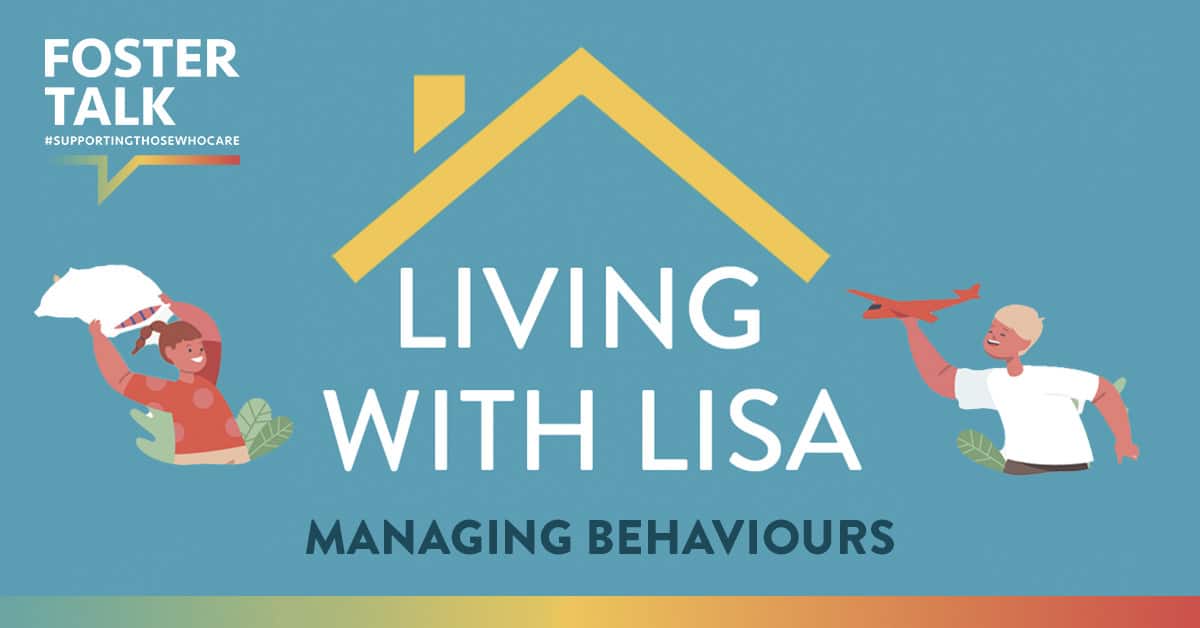Welcome to our monthly blog with Foster Carer Lisa Scott.
This month, Lisa shares her experience with managing childhood behaviours.
This month I thought I would touch on behaviours. During my years of fostering, I have witnessed and experienced many types of behaviours, some random, some absurd but all very challenging in different ways.
Some present themselves out of nowhere, and I think “…WOAH !!! where did that come from??”
Over the years, I have learnt how to unpick the action, work out what triggers it and what may be at the core, looking beyond the behaviour rather than react to it.

I remember one young boy who would always question my driving and take a different route back from school. I soon realized that it was his insecurity, ensuring that we were going home. So, I would explain to him if I took a diversion and why, and he soon became a lot calmer in the car. If we travelled on any other form of transport like planes or trains, I would discuss the journey beforehand and not presume that he knew what would be happening en route. It was most likely that he had never experienced these types of travel and would become very anxious if we didn’t brief him, and he was reassured about when we would be returning home.
The same young man also stole money from us; this was very hurtful at the time. However, we challenged his actions and listened to him, putting aside our own emotions. It became clear that he was struggling to budget his pocket money and lunch money that we provided every week. He was unused to having such an amount of money at once but was then spending this too quickly and was thus taking additional money, hoping we wouldn’t notice. We realized we could help prevent this behaviour by giving him smaller amounts more regularly throughout the week to budget better and build his confidence and self-esteem.
“I have learned that they are shouting about the problem and not at me, reducing intimidating feelings.”
Sometimes, I have found it very difficult to look beyond the behaviour, especially if there is aggression thrown in the mixture. On occasions, I have had young people square up to me and be verbally abusive. I have learned that they are shouting about the problem and not at me, reducing intimidating feelings.
I can help explain the “red mist”, how it arrives, and their feelings of losing control. For some young people punching a wall appeared to be the only action that takes it away. I found this heartbreaking as this causes damage to the knuckles, can be destructive to the home environment, and creates feelings of guilt and shame afterwards. Attending regular sporting activities can also be beneficial in helping to get rid of negative energy and frustrations, flooding the body with feel-good hormones and improving a young person’s self-esteem. For younger children, we found a good old bounce on the trampoline helpful.
Children’s conduct can be positive or negative and can be hard to deal with, especially when it’s repetitive, and you are dealing with it daily. Understanding a child’s experience, what the child or young person is communicating via the behaviour and noting any triggers can help inform a response. However, as foster carers, we are not on our own and are part of a team so if there are issues, seek advice from your Supervising Social Worker. Ensure you are familiar with the relevant policy and procedures within your fostering service, such as behaviour management, restraint, safeguarding etc. and attend appropriate training to help you. You may also wish to seek a referral for specialist input dependent on the child’s needs. Review the safer care policy with the Supervising Social Worker to reflect any behaviour issues and address the needs of all household members. Suppose there are particularly concerning behaviours (examples might include self-harming, absconding or physical aggression). In that case, it may be helpful to request a risk assessment to consider how any risk factors may be reduced for everyone in the household and specify what actions a foster carer can take.

Involving the child or young person in this process, depending on their age and level of understanding, may be helpful to aid their understanding of any rules in place and the actions required of the foster carer; for example, reporting them missing to the police.

Lisa has worked at FosterTalk for over 4 years and is currently in our Memberships team.
There’s not much Lisa doesn’t know about fostering and running a very busy household.
She’s been married for 25 years, has been fostering for 9 years.
With 3 birth children, an 18-year-old and 22-year-old twins as well as 2 foster children on Staying Put agreements and 1 Supported Lodgings, we’d say she’s very experienced in living with young people, experiencing the daily issues they face and providing the support they need to progress through life.

